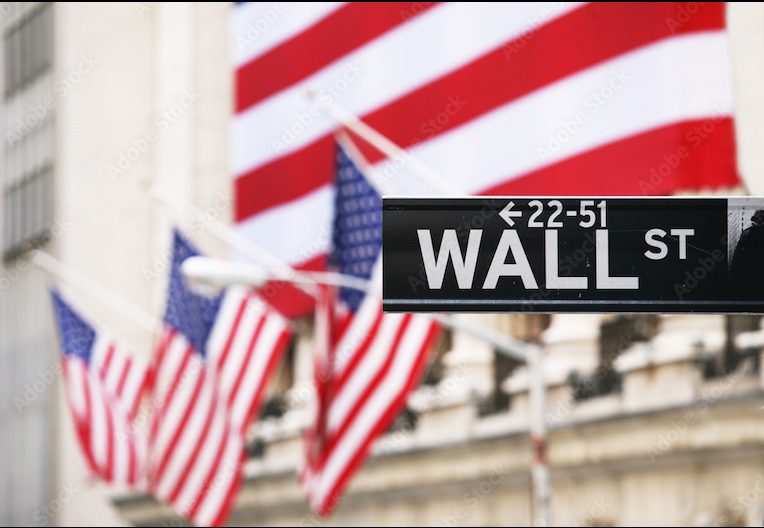Last week was always set up to be a significant investment week, even without the war going on in Ukraine. Throughout the week over 400 of the largest companies on the planet all reported their financial results for the first 3 months of the year. Once again the focus was on the US. Alphabet (parent of Google), Amazon, Apple, Meta (formerly Facebook) and Microsoft all reported last week. Together with Netflix (that had disastrous results published last week) – They are more or less known as FAANG+ and account for around 25% of all the value of the S&P 500. We have Alphabet, Amazon, Apple & Microsoft in our portfolios as do pretty much every US investor.
Apple has grown to be larger than all the companies in the FTSE 100 index put together. In fact it is larger than every European Share Index.
| Stock/Index | Market Cap ($T) | Country of Origin |
| Apple | $3.00T | US |
| FTSE 100 | $2.90T | UK |
| CAC 40 Index | $2.76T | France |
| Dax 40 | $2.50T | Germany |
So how did the top 400 companies perform?
Most took all of the recent issues in their stride. Issues that included supply chain issues, a reluctance of many in the service industries to return to work, Omicron still prevalent across the US, a slowing down of consumer activity as individuals understood that inflation was going to take a bite out of discretionary spending and for the final month of the quarter the dramatic rise in energy prices.
So how did the markets perform?
Markets didn’t perform well. They are an indicator of the future not a reflection of the current. They say bull markets (periods of long term rising markets) don’t die of old age, but are assassinated by central bankers. At the start of the year, comments from the US Federal Reserve following the rapid climb in inflation, echoed across much of the developed West, spooked market participants, triggering the start of the year sell off. The Russian invasion sent already high energy prices sky high at the end of February, which meant for all investors, the first quarter was a period we were glad to see the back of.
This 2nd quarter started with a reprieve as the fear of WWIII started to subside and Omicron was pretty much come to terms with across the Western World. Putin’s blatant land and commodity grab wasn’t proceeding to plan and it was hoped that some kind of compromise could be settled upon.
Enter The Dragon
However, Covid 19 returned to China, which has once again set the cat amongst the pigeons as it is clear global companies, rapidly on-shoring as much manufacturing locally as they are able, will not be in time to avoid further supply chain issues which will hit profits in Quarter 2 for many companies. Apple guessed at between $4 – $8 short in revenue for the quarter and sales on Amazon faltered as China locks down and fails to supply in the short term. The markets reflect the future, hence shares fell through most of the week and again on Friday.
Conflict in Europe
Putin has made it clear there is no turning back. He has burned all bridges as these atrocities will not be tolerated unlike the poisonings of individuals, the imprisonment of political opponents and the use of banned weaponry in Syria. An out and out bully who will succeed to carry on further bullying, or will die trying. The current economic sanctions won’t work with Germany and France in Putins pocket. Whilst Europe has sent aid of $1billion to the Ukraine, it continues with oil and gas imports that further fund Putin’s goal to the tune of $35billion. Many international companies and countries are boycotting Russia, whilst some European companies still continue to operate manufacturing plants (You know who you are Renault) I’m afraid only a show of NATO military solidarity can thwart Putin’s plans, both now and in the future.
The enemy of my enemy is my friend.
The dollar is the global reserve currency. All commodities are priced in dollars and then converted to other currencies. It suits many Middle East oil producing countries and many other developing countries who choose to export raw materials priced in a strong currency. However working in dollars is a thorn in the side of the Russians and the Chinese. Together, perhaps they feel they now have a shot at changing the world order? China temporarily shutting up shop at this precise moment could be a coincidence, but we will only know in a month or so if the lockdowns persist over the longer term.
Western nations have borrowed heavily to contain the political fallout that Covid could have brought. Forget party gate, what about the £400 billion spent in the UK! Nations have never held so much debt, so challenging the value of the dollar, and along with it the value of Sterling and the Euro could be a far greater victory in challenging the West than the sanctions imposed on the Oligarchs.
China Is key. It would benefit long term from selling to the West its goods in Renminbi, but a currency devalued West could not afford to buy China’s products in such great volume in the first place. As the second largest economy on the planet China has much to lose. Russia however with an economy measured even lower than that of Spain has nothing to loose but can’t challenge the dollars supremacy alone. (No disrespect to Spain but it makes the point)
A Bit on the Side
How have the world’s largest economies changed over time from 1970 to 2020? These graphics show countries sized by their GDP, as a share of the global total.
Sentiment drives investment returns
I have a friend and client from the NE who has a cracking turn of phrase so I’m going to steal one to describe the current level of investor sentiment.
Already investment sentiment is lower than a snake’s belly.
The weeks reporting was bad news for some of the stay at home US stocks like Nvidia, Netflix and to some extent Amazon, but overall company earnings matched estimates. Forward guidance to a large extent is a crapshoot depending upon how long Xi Jinping can stick to a zero Covid policy (perhaps only as long as is needed for more dissident voices to disappear)
The reporting season is mainly over now for the first quarter and it wasn’t horrific for most companies. With sentiment this low it’s hard to see how it becomes lower from here, short of actual nuke strikes.
Are we taking too much risk?
Currently we are back down to just less than 10% lower than our all time highs last October. Between us we now hold just short of £100 million in savings. There has been a rough balance of top-ups versus withdrawals over the period.
I can’t stress enough that we are not invested in one single Russian company, a fund that holds Russian shares or a UK listed commodity company with extensive mining interests in Russia. The Russian Stockmarket didn’t re-open at the end of February, so all holders of these assets currently cannot estimate the value or indeed know that their investment capital will ever be returned. I currently take the same view in avoiding Chinese equities. We only hold world class companies that are well capitalised and will be amongst the first to return to fair value.
What’s Next?
Well it is going to remain bumpy for some time and we need to adapt as events change. Bull markets always start from lows just like this. Fair value is eventually achieved, that attracts some investment and then more investment follows driving up prices. From here all surprises could hopefully be to the upside.

